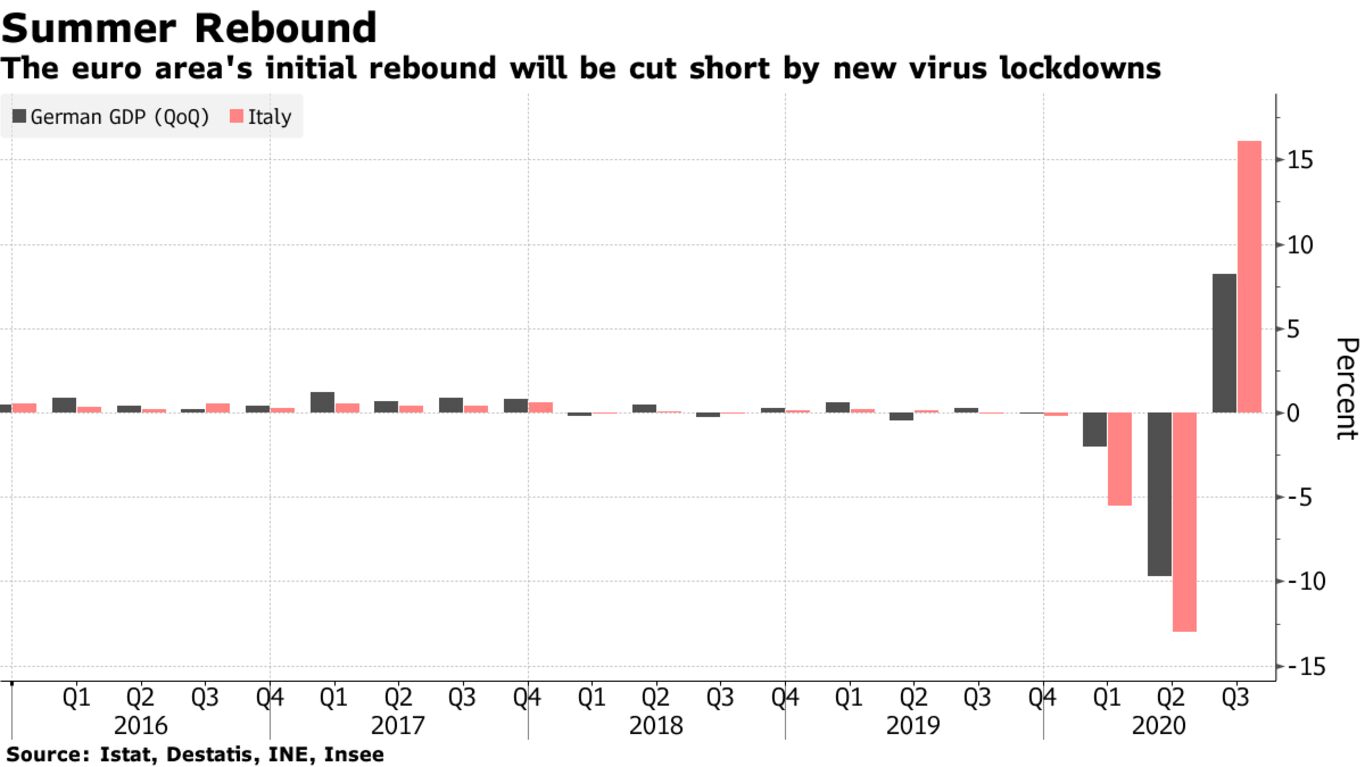Germany and the rest of the euro area’s biggest economies surged in the third quarter, in a rebound that’s now being derailed by an intensifying pandemic and new government restrictions on businesses across the region. German GDP jumped 8.2%, while there were double-digit gains in France, Italy and Spain, with every reading beating the median expectations of economists. Those bouncebacks follow huge slumps in the previous three months, when activity came to a near halt amid lockdowns to contain the pandemic.
More up-to-date indicators paint a far gloomier picture, and the bloc’s economy is now at risk of slipping back into recession. The European Central Bank has acknowledged the increasing danger, signaling it will pump more stimulus into the economy in December.

Key Developments:
- Holzmann says it’s right to assume Lagarde signaled stimulus
- ECB pushes governments to get on with spending
- France says second lockdown will cut output by 15%
- FRANCE REACT: Strong rebound masks steep contraction ahead
Germany updates economic forecasts (10:15 a.m. CET)
German Economy Minister Peter Altmaier confirmed that the government still expects a slightly less severe contraction this year than previously feared. GDP may shrink 5.5% versus a September prediction for 5.8%. The new forecasts, which include the latest virus restrictions, see growth of 4.4% in 2021.
Spanish Economy Minister Nadia Calvino expressed optimism over the recovery path, even though uncertainty remains high. “The priorities continue to be the same — working in a coordinated way in Spain and in Europe to tackle the pandemic and continue to support businesses and families.”
In France, Finance Minister Bruno Le Maire put a positive spin on the government’s downward revision to the 2020 outlook. “The economy has a considerable capacity to rebound,” he said on France Inter radio. “As soon as 2021, we will be able to get growth figures that are good growth figures.”
